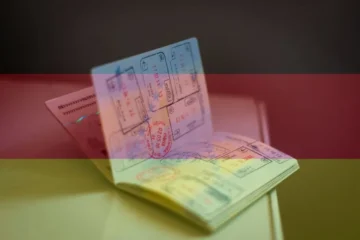As of April 11, 2025, Norway officially rolled out a new set of income rules for foreign skilled workers, and if you’re eyeing a work permit, you’ll want to take note. The Directorate of Immigration (UDI) raised the minimum salary requirements for job offers tied to skilled residence permits, a move aimed at ensuring parity with domestic labor standards.
Key Takeaways
What Changed in Norway’s Work Visa Policy for 2025?
This change isn’t just a bureaucratic footnote—it directly affects your eligibility to enter or stay in Norway for work. Whether you’re a fresh applicant, renewing your permit, or waiting on a decision, these rules are now part of the game. And for those navigating Norway’s famously structured system, this means one more box to check (and check carefully).
What Are the New Minimum Salary Requirements?
The updated salary thresholds are now clearly split by educational level. If you’re applying with a bachelor’s degree, your job offer must guarantee you at least NOK 469,366 annually before tax. If you’ve got a master’s degree, the bar rises to NOK 513,100.
These figures apply to full-time positions and are based on Norway’s national wage statistics. UDI uses these benchmarks to protect both foreign workers from underpayment and local job markets from wage dumping. It’s important to note that these are not gross estimates—they’re grounded in actual national pay averages, so lowball offers won’t pass muster.
Do These Salary Rules Apply to All Foreign Workers?
In short, yes, almost everyone is affected. The updated salary thresholds now apply to:
- New skilled worker applications
- Renewals of existing residence permits
- Pending cases that were under consideration as of April 11, 2025
Also Read: Has Norway Made It Easier to Get Permanent Residency in 2025?
There are very few exceptions, and these mainly apply to individuals working in roles not categorized under the “skilled worker” framework or those entering under different visa schemes altogether. If you’re on a student or seasonal work visa, for example, this policy doesn’t touch you—but for skilled migration, it’s the new baseline.
What If You Work in a Sector with Collective Agreements?
Here’s where it gets nuanced. If your profession falls under a collective bargaining agreement—and many in Norway do—your salary must align with the agreed-upon sector standards, even if those are higher than the national thresholds.
Take healthcare, construction, or hospitality. These industries often have strong union protections and pre-negotiated wage levels. If those numbers exceed the NOK 469,366 or NOK 513,100 thresholds, your employer needs to match the collective rate, not just the general minimum. So, don’t just compare your offer to the general rule—check what your sector demands.
Can You Still Get a Visa with a Lower Salary?
Interestingly, there is a small window here. UDI recognizes that some jobs—especially in specific regions or sectors—don’t always meet the national average wages. If your salary offer is below the official threshold but matches the standard pay for that exact job in that region, you might still be approved.
However, this is no loophole to slide through casually. Your employer must document that the offered salary reflects local market conditions, and UDI will evaluate these claims against labor data and wage charts. If the numbers look fair and consistent with industry norms, they may greenlight the application.
Why Did Norway Introduce These Changes?
It’s not just about tightening the rules—it’s about keeping things fair. Norway’s move to raise salary thresholds stems from several goals:
- Protecting the labor market from wage suppression caused by low-paying foreign contracts.
- Aligning immigration policy with national wage growth, ensuring that skilled migration contributes positively to the economy.
- Encouraging quality over quantity in the migrant workforce—attracting individuals who meet both educational and financial standards.
By tying income rules to degree levels and enforcing sector-specific wages, Norway is reinforcing its commitment to structured, high-value labor migration.
What Should You Do Before Applying in 2025?
If you’re planning to apply (or reapply) for a skilled work visa in Norway, start with the salary conversation. Before you even gather your documents or book an appointment, double-check that your job offer hits the correct salary threshold, based on your degree level or collective agreement.
Here’s a quick checklist to stay on track:
- Confirm your educational qualifications and ensure they’re recognized in Norway.
- Ask your employer for a detailed salary breakdown and confirm it aligns with UDI rules.
- Verify whether your sector follows a collective agreement and request relevant documentation if so.
- Ensure your offer meets the regional wage expectations if it’s below the national threshold.
- Prepare all supporting documents, including employment contracts and wage slips, in advance.
A well-prepared, “decision-ready” application can significantly cut down on processing time and boost your approval chances.
Reference: https://www.udi.no/en/want-to-apply/work-immigration/skilled-workers/





